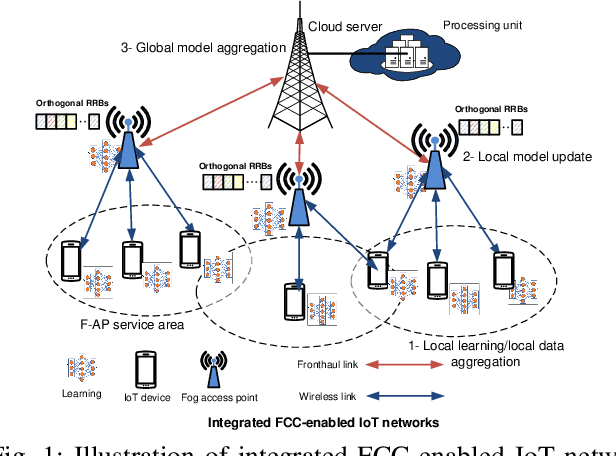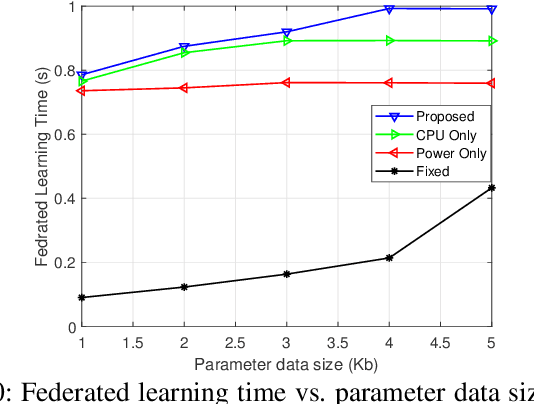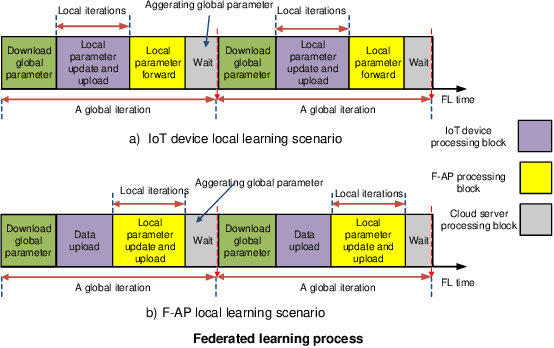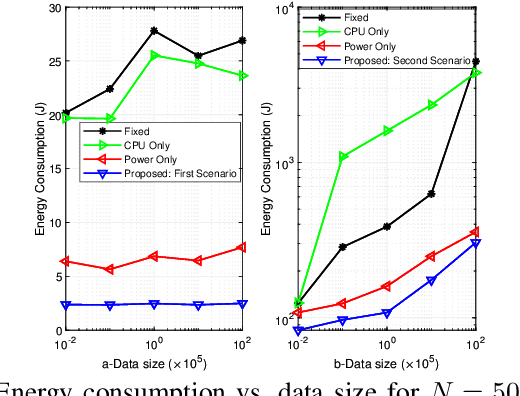Mohammed S. Al-Abiad
Energy Efficient Federated Learning in Integrated Fog-Cloud Computing Enabled Internet-of-Things Networks
Jul 07, 2021



Abstract:We investigate resource allocation scheme to reduce the energy consumption of federated learning (FL) in the integrated fog-cloud computing enabled Internet-of-things (IoT) networks. In the envisioned system, IoT devices are connected with the centralized cloud server (CS) via multiple fog access points (F-APs). We consider two different scenarios for training the local models. In the first scenario, local models are trained at the IoT devices and the F-APs upload the local model parameters to the CS. In the second scenario, local models are trained at the F-APs based on the collected data from the IoT devices and the F-APs collaborate with the CS for updating the model parameters. Our objective is to minimize the overall energy-consumption of both scenarios subject to FL time constraint. Towards this goal, we devise a joint optimization of scheduling of IoT devices with the F-APs, transmit power allocation, computation frequency allocation at the devices and F-APs and decouple it into two subproblems. In the first subproblem, we optimize the IoT device scheduling and power allocation, while in the second subproblem, we optimize the computation frequency allocation. For each scenario, we develop a conflict graph based solution to iteratively solve the two subproblems. Simulation results show that the proposed two schemes achieve a considerable performance gain in terms of the energy consumption minimization. The presented simulation results interestingly reveal that for a large number of IoT devices and large data sizes, it is more energy efficient to train the local models at the IoT devices instead of the F-APs.
 Add to Chrome
Add to Chrome Add to Firefox
Add to Firefox Add to Edge
Add to Edge